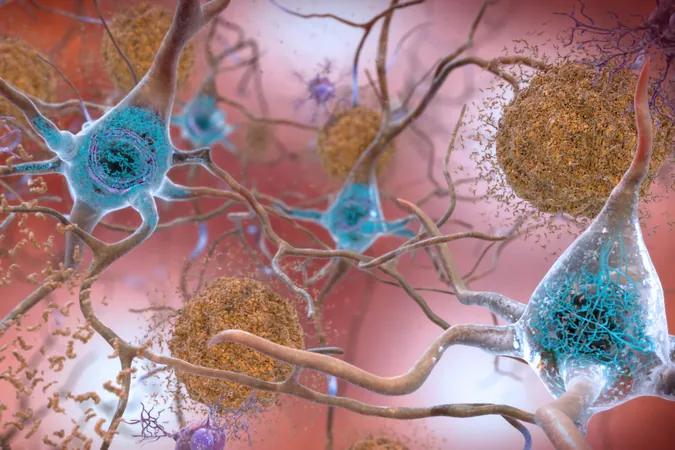
Revealing the Hidden Damage: How Multiple Sclerosis Affects the Retina
2025-09-15
Author: Daniel
Groundbreaking Italian Study Sheds Light on Retinal Health in MS Patients
A pioneering study from Italy reveals that relapsing-remitting multiple sclerosis (MS) could impact all areas of the macula, even in patients with no prior optic neuropathy, according to lead researcher Dr. Lucilla Barbano from the Istituto di Ricovero e Cura a Carattere Scientifico—Fondazione Bietti in Rome.
Published in the Journal of Clinical Medicine, this research underscores the importance of examining retinal health in MS patients.
The Quest for Understanding Retinal Involvement
Extensive studies have focused on unraveling the damage to macular unmyelinated axons of retinal ganglion cells (RGCs) in MS patients. These neuronal structures are significant targets for neurodegenerative processes tied to the frequent inflammation seen in optic nerves, known as optic neuritis (ON). Optical coherence tomography (OCT) images have highlighted thinning in the ganglion cell/inner plexiform layer (GCIPL) complex, signaling early retinal impairment.
New Findings on Patients Without Optic Neuritis
However, until now, less attention has been given to the functional state of the macula in eyes of patients with MS who have never experienced ON. To bridge this gap, Barbano and her team analyzed the structure and function of the inner retinal ganglionic elements in selected areas of patients' retinas.
The Study's Scope and Results
The study involved 24 patients with MS and no history of optic neuritis (average age 45.2 years) and 30 age-matched control subjects. Through comprehensive ophthalmologic examinations, OCT scans, and multifocal photopic negative response (mfPhNR) measurements, the researchers assessed the thickness of the ganglion cell layer (GCL) and the responsiveness of the retina.
Their findings were alarming: the MS patients exhibited significantly reduced GCL thickness and mfPhNR amplitude compared to controls, indicating substantial retinal dysfunction even in the absence of prior optic nerve inflammation.
Implications of the Research
The study concludes that patients with relapsing-remitting MS, even without visible optic nerve inflammation, face potential primary structural and functional deterioration in their macular regions.
The implications are profound, with hopes that future research will explore if these findings also hold true across different types and stages of MS.
What’s Next for Research?
This research paves the way for further exploration into how MS affects retinal health, offering new insights that might improve patient diagnosis and treatment. Scientists aim to understand whether these structural damages could lead to different outcomes as the disease progresses. Stay tuned for more discoveries in the realm of MS and retinal health!




 Brasil (PT)
Brasil (PT)
 Canada (EN)
Canada (EN)
 Chile (ES)
Chile (ES)
 Česko (CS)
Česko (CS)
 대한민국 (KO)
대한민국 (KO)
 España (ES)
España (ES)
 France (FR)
France (FR)
 Hong Kong (EN)
Hong Kong (EN)
 Italia (IT)
Italia (IT)
 日本 (JA)
日本 (JA)
 Magyarország (HU)
Magyarország (HU)
 Norge (NO)
Norge (NO)
 Polska (PL)
Polska (PL)
 Schweiz (DE)
Schweiz (DE)
 Singapore (EN)
Singapore (EN)
 Sverige (SV)
Sverige (SV)
 Suomi (FI)
Suomi (FI)
 Türkiye (TR)
Türkiye (TR)
 الإمارات العربية المتحدة (AR)
الإمارات العربية المتحدة (AR)